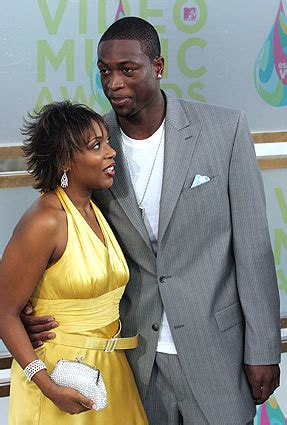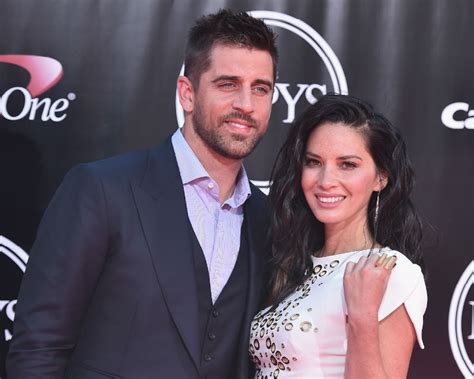
Dwyane Wade is suing his ex-wife, Siohvaughn Funches-Wade, alleging she falsely accused him of transmitting a sexually transmitted disease and claiming her infidelity during their marriage forced him to take legal action to protect his reputation and parental rights.
Former NBA star Dwyane Wade has filed a lawsuit against his ex-wife, Siohvaughn Funches-Wade, accusing her of making false and defamatory claims that he transmitted a sexually transmitted disease to her. According to court documents, Wade alleges that Funches-Wade’s accusations are baseless and stem from her ongoing attempts to undermine his reputation and jeopardize his relationship with their children. The lawsuit asserts that Funches-Wade’s infidelity during their marriage led to its dissolution and necessitated Wade to take legal measures to protect his parental rights.
The legal battle between Wade and Funches-Wade has been protracted and highly contentious, spanning over a decade since their divorce in 2010. While previous disputes primarily revolved around custody and financial support, the current lawsuit marks a significant escalation, introducing allegations of defamation and false claims of STD transmission. Wade’s legal team asserts that Funches-Wade’s actions are malicious and intended to inflict emotional distress and damage his personal and professional life.
In the court filing, Wade states that he “had no other choice” but to file the lawsuit to defend his integrity and protect his children from the harmful effects of Funches-Wade’s actions. He claims that her repeated attempts to tarnish his reputation have created a toxic environment that negatively impacts their children’s well-being. Wade’s legal team emphasizes that he has consistently acted in the best interests of his children and that Funches-Wade’s allegations are a deliberate attempt to undermine his role as a responsible and loving father.
The lawsuit details instances where Funches-Wade allegedly made false statements about Wade’s health and personal conduct to various individuals, including their children, family members, and acquaintances. Wade’s legal team argues that these statements constitute defamation and have caused significant damage to his reputation and emotional state. The lawsuit seeks compensatory and punitive damages, as well as a court order prohibiting Funches-Wade from making further false statements about Wade.
Funches-Wade has not yet issued a formal response to the lawsuit, but previous statements made by her suggest that she believes Wade has not been forthcoming about his personal life and health. In the past, she has accused Wade of concealing information and manipulating the legal system to gain an advantage in their custody battles. Funches-Wade has also claimed that Wade has used his wealth and influence to silence her and prevent her from speaking out about her experiences during their marriage and after their divorce.
The current lawsuit is expected to be a complex and highly publicized legal battle, given the high-profile nature of the individuals involved and the sensitive allegations being made. Legal experts anticipate that the case will involve extensive discovery, including depositions, document production, and expert testimony. The outcome of the lawsuit could have significant implications for both Wade and Funches-Wade, as well as for their children, who have been caught in the middle of their parents’ ongoing disputes.
The legal proceedings are likely to delve into the details of Wade and Funches-Wade’s marriage, including allegations of infidelity and other misconduct. The court will need to determine whether Funches-Wade’s statements about Wade’s health and personal conduct are false and defamatory and whether she acted with malice in making those statements. The lawsuit also raises questions about the impact of parental conflict on children and the role of the court in protecting children from the harmful effects of such conflict.
Wade’s decision to file the lawsuit underscores the challenges that can arise in high-profile divorce cases, particularly when children are involved. The case highlights the importance of protecting one’s reputation and parental rights, as well as the need to address false and defamatory statements that can cause significant damage. The legal battle between Wade and Funches-Wade serves as a cautionary tale about the complexities of divorce and the potential for ongoing conflict, even years after the legal proceedings have concluded.
The lawsuit also touches on broader issues related to defamation law, including the burden of proof required to establish a claim of defamation and the defenses available to defendants in such cases. In order to succeed in his defamation claim, Wade will need to prove that Funches-Wade made false statements about him, that she published those statements to third parties, and that the statements caused damage to his reputation. Funches-Wade may argue that her statements were true, that they were protected by a privilege, or that Wade has not suffered any actual damages as a result of her statements.
The case is expected to attract significant media attention, given Wade’s status as a retired NBA star and the sensitive nature of the allegations being made. The media coverage could further exacerbate the conflict between Wade and Funches-Wade and could have a negative impact on their children. The court will need to carefully manage the publicity surrounding the case to ensure that the proceedings are fair and that the children’s best interests are protected.
Wade’s lawsuit also brings to light the issue of post-divorce co-parenting challenges, especially in high-profile cases where personal and professional lives are intricately intertwined. The ability of divorced parents to effectively co-parent is crucial for the well-being of their children, but ongoing conflict and legal battles can make this process exceedingly difficult. The case serves as a reminder of the importance of prioritizing children’s needs and finding constructive ways to resolve disputes outside of the courtroom whenever possible.
Furthermore, the lawsuit raises questions about the use of legal remedies to address personal grievances and reputational harm. While Wade has a right to defend his reputation and protect his parental rights, the decision to file a lawsuit against his ex-wife is a significant step that could have far-reaching consequences. The case underscores the importance of carefully considering all available options before resorting to litigation and of seeking legal advice to understand the potential risks and benefits of such a course of action.
The legal community will be closely watching the Wade-Funches-Wade case as it unfolds, as it could set important precedents in the areas of defamation law, parental rights, and post-divorce co-parenting. The case also serves as a reminder of the complexities and challenges that can arise in high-profile divorce cases and the importance of seeking professional guidance to navigate these difficult situations.
The implications of Wade’s lawsuit extend beyond the immediate parties involved, touching on broader societal issues related to family law, reputation management, and the impact of parental conflict on children. The case underscores the need for greater understanding and awareness of these issues and for the development of effective strategies to prevent and resolve disputes in a way that minimizes harm to all involved. The legal proceedings are expected to be lengthy and complex, and the outcome will likely have a lasting impact on the lives of Wade, Funches-Wade, and their children.
The lawsuit filed by Dwyane Wade against Siohvaughn Funches-Wade underscores the deep-seated animosity and unresolved issues stemming from their divorce. This legal action highlights the challenges faced by high-profile individuals navigating complex family law matters in the public eye. It also underscores the enduring impact of divorce on families, particularly when children are involved, and the importance of resolving conflicts in a manner that protects their well-being. The case is expected to generate significant media attention and could have far-reaching implications for both parties involved.
The legal battle between Wade and Funches-Wade highlights the complexities and challenges that can arise in high-profile divorce cases, particularly when significant assets and child custody are involved. The current lawsuit underscores the ongoing conflict between the former couple and the difficulties they have faced in co-parenting their children. The allegations of defamation and false claims of STD transmission add a new layer of complexity to the case and could have serious consequences for both parties involved.
The case raises questions about the role of the court in resolving disputes between divorced parents and the extent to which legal remedies should be used to address personal grievances and reputational harm. The lawsuit also highlights the importance of protecting children from the harmful effects of parental conflict and ensuring that their best interests are prioritized in all legal proceedings. The legal community will be closely watching the case as it unfolds, as it could set important precedents in the areas of defamation law, parental rights, and post-divorce co-parenting.
Wade’s decision to file the lawsuit may be seen as a necessary step to protect his reputation and parental rights, given the serious allegations being made against him. However, the legal action could also exacerbate the conflict between him and Funches-Wade and could have a negative impact on their children. The case underscores the importance of carefully considering all available options before resorting to litigation and of seeking professional guidance to navigate complex family law matters.
The lawsuit filed by Wade against Funches-Wade is a stark reminder of the challenges and complexities that can arise in high-profile divorce cases. The allegations of defamation and false claims of STD transmission add a new layer of complexity to the case and could have serious consequences for both parties involved. The legal proceedings are expected to be lengthy and contentious, and the outcome will likely have a lasting impact on the lives of Wade, Funches-Wade, and their children.
The ongoing legal battle between Wade and Funches-Wade serves as a cautionary tale about the difficulties of divorce and the potential for ongoing conflict, even years after the legal proceedings have concluded. The case highlights the importance of resolving disputes in a manner that minimizes harm to all involved and of prioritizing the well-being of children in all family law matters. The legal community will be closely watching the case as it unfolds, as it could set important precedents in the areas of defamation law, parental rights, and post-divorce co-parenting.
Wade’s lawsuit is a complex case involving allegations of defamation and false claims of STD transmission. The legal proceedings are expected to be lengthy and contentious, and the outcome will likely have a lasting impact on the lives of Wade, Funches-Wade, and their children. The case underscores the challenges and complexities that can arise in high-profile divorce cases and the importance of seeking professional guidance to navigate these difficult situations.
The lawsuit filed by Wade against Funches-Wade highlights the ongoing conflict between the former couple and the difficulties they have faced in co-parenting their children. The allegations of defamation and false claims of STD transmission add a new layer of complexity to the case and could have serious consequences for both parties involved. The legal community will be closely watching the case as it unfolds, as it could set important precedents in the areas of defamation law, parental rights, and post-divorce co-parenting.
Wade’s decision to file the lawsuit underscores the challenges that can arise in high-profile divorce cases, particularly when children are involved. The case highlights the importance of protecting one’s reputation and parental rights, as well as the need to address false and defamatory statements that can cause significant damage. The legal battle between Wade and Funches-Wade serves as a cautionary tale about the complexities of divorce and the potential for ongoing conflict, even years after the legal proceedings have concluded.
Wade’s legal team is expected to present evidence to support his claims of defamation and false statements. This evidence may include documentation, witness testimony, and expert analysis. Funches-Wade’s legal team will likely challenge the evidence presented by Wade and argue that her statements were either true or protected by a legal privilege. The court will need to carefully consider the evidence and arguments presented by both sides before reaching a decision.
The outcome of the lawsuit could have significant implications for both Wade and Funches-Wade. If Wade is successful in his defamation claim, he could be awarded monetary damages and a court order prohibiting Funches-Wade from making further false statements about him. If Funches-Wade is successful in defending against the defamation claim, she could avoid liability for damages and maintain her right to speak freely about her experiences.
The lawsuit also raises questions about the role of the media in covering high-profile legal cases. The media coverage could further exacerbate the conflict between Wade and Funches-Wade and could have a negative impact on their children. The court will need to carefully manage the publicity surrounding the case to ensure that the proceedings are fair and that the children’s best interests are protected.
Wade’s lawsuit against Funches-Wade underscores the complexities and challenges that can arise in high-profile divorce cases. The legal proceedings are expected to be lengthy and contentious, and the outcome will likely have a lasting impact on the lives of Wade, Funches-Wade, and their children. The case highlights the importance of seeking professional guidance to navigate these difficult situations and of resolving disputes in a manner that minimizes harm to all involved.
The lawsuit filed by Dwyane Wade against Siohvaughn Funches-Wade is a complex and sensitive matter that involves allegations of defamation, false claims of STD transmission, and parental rights. The legal proceedings are expected to be closely watched by the media and the public, and the outcome will likely have a significant impact on the lives of all parties involved. The case serves as a reminder of the challenges and complexities that can arise in high-profile divorce cases and the importance of seeking professional guidance to navigate these difficult situations.
Frequently Asked Questions (FAQ)
-
What are the main allegations in Dwyane Wade’s lawsuit against Siohvaughn Funches-Wade? Dwyane Wade is suing Siohvaughn Funches-Wade for defamation, alleging she falsely accused him of transmitting a sexually transmitted disease. The lawsuit also claims that her infidelity during their marriage forced him to take legal action to protect his reputation and parental rights.
-
Why is Dwyane Wade claiming he “had no other choice” but to file the lawsuit? According to court documents, Wade claims he “had no other choice” because he believes Funches-Wade’s false statements are damaging his reputation and negatively impacting their children. He asserts that her actions are a deliberate attempt to undermine his role as a responsible and loving father.
-
Has Siohvaughn Funches-Wade responded to the lawsuit? As of the latest reports, Siohvaughn Funches-Wade has not yet issued a formal response to the lawsuit. However, in the past, she has made statements suggesting that Wade has not been forthcoming about his personal life and health, and has accused him of manipulating the legal system.
-
What are the potential implications of this lawsuit for Dwyane Wade and Siohvaughn Funches-Wade’s children? The lawsuit could have a negative impact on their children due to the public nature of the allegations and the potential for increased conflict between their parents. The court will need to carefully manage the publicity surrounding the case to ensure the proceedings are fair and that the children’s best interests are protected.
-
What is the legal basis for Dwyane Wade’s defamation claim? To succeed in his defamation claim, Wade will need to prove that Funches-Wade made false statements about him, that she published those statements to third parties (including their children, family, and acquaintances), and that the statements caused damage to his reputation. Funches-Wade may defend by arguing the statements were true, privileged, or did not cause actual damages.
-
What kind of damages is Dwyane Wade seeking in the lawsuit?
Dwyane Wade is seeking both compensatory and punitive damages in the lawsuit. Compensatory damages aim to cover the actual harm he allegedly suffered due to the defamation, such as damage to his reputation, emotional distress, and potential financial losses. Punitive damages, on the other hand, are intended to punish Funches-Wade for her alleged malicious actions and deter similar behavior in the future.
- What role might evidence play in the outcome of the lawsuit?
Evidence will play a crucial role in determining the outcome of the lawsuit. Wade’s legal team will need to present compelling evidence to support his claims of defamation and false statements. This evidence may include documentation, witness testimony, expert analysis, and any other relevant information that can demonstrate the falsity of Funches-Wade’s statements and the harm they caused to Wade’s reputation and personal life. Funches-Wade’s legal team will likely challenge the evidence presented by Wade and may present their own evidence to support their defense.
- How might the media coverage of the lawsuit impact the legal proceedings and the parties involved?
The media coverage of the lawsuit could have a significant impact on the legal proceedings and the parties involved. The intense media scrutiny could further exacerbate the conflict between Wade and Funches-Wade and potentially influence public perception of the case. The court will need to carefully manage the publicity surrounding the case to ensure that the proceedings remain fair and impartial and that the children’s best interests are protected from the potentially negative effects of excessive media attention.
- What broader legal and social issues does the Wade-Funches-Wade case highlight?
The Wade-Funches-Wade case highlights several broader legal and social issues, including the challenges of high-profile divorce cases, the impact of parental conflict on children, the importance of protecting one’s reputation and parental rights, and the use of legal remedies to address personal grievances and reputational harm. It also raises questions about the role of the court in resolving disputes between divorced parents and the extent to which legal remedies should be used to address personal grievances and reputational harm.
- What are some potential strategies that Dwyane Wade’s legal team might employ during the lawsuit?
Dwyane Wade’s legal team might employ several strategies, including:
- Presenting evidence of Funches-Wade’s alleged false statements and their dissemination to third parties.
- Demonstrating the damage to Wade’s reputation and emotional well-being resulting from the statements.
- Highlighting Funches-Wade’s alleged malicious intent in making the statements.
- Emphasizing Wade’s commitment to his children’s well-being and the negative impact of Funches-Wade’s actions on their lives.
- Utilizing expert witnesses to provide testimony on issues such as defamation law, reputation management, and the psychological effects of false accusations.
- What are some potential defenses that Siohvaughn Funches-Wade’s legal team might use?
Siohvaughn Funches-Wade’s legal team might employ several defenses, including:
- Arguing that her statements were true or substantially true.
- Asserting that the statements were protected by a legal privilege, such as the privilege to report suspected wrongdoing.
- Contending that Wade has not suffered any actual damages as a result of her statements.
- Challenging the credibility of Wade’s witnesses and evidence.
- Arguing that Wade’s lawsuit is an attempt to silence her and prevent her from speaking out about her experiences.
- What is the likely timeline for the Wade-Funches-Wade lawsuit?
Given the complexity of the issues involved and the potential for extensive discovery and legal maneuvering, the Wade-Funches-Wade lawsuit could take several months or even years to resolve. The timeline will depend on factors such as the pace of discovery, the court’s calendar, and the willingness of the parties to negotiate a settlement.
- How could the outcome of this lawsuit affect future divorce and custody cases involving high-profile individuals?
The outcome of the Wade-Funches-Wade lawsuit could set important precedents in the areas of defamation law, parental rights, and post-divorce co-parenting. It could also influence how courts handle similar cases involving high-profile individuals in the future, particularly with respect to the admissibility of evidence, the assessment of damages, and the protection of children’s best interests.
- What role might Wade’s status as a public figure play in the defamation case?
Wade’s status as a public figure could make it more difficult for him to succeed in his defamation claim. Under defamation law, public figures generally have a higher burden of proof than private individuals. Wade will likely need to demonstrate that Funches-Wade acted with “actual malice,” meaning that she knew her statements were false or acted with reckless disregard for the truth.
- How might the lawsuit affect Wade’s brand and endorsement deals?
The lawsuit could potentially affect Wade’s brand and endorsement deals, depending on the nature and extent of the media coverage and the public’s perception of the allegations. Companies that have partnered with Wade may be concerned about the potential for negative publicity and may re-evaluate their relationships with him. However, if Wade is successful in defending his reputation and demonstrating the falsity of the allegations, the long-term impact on his brand and endorsement deals may be minimal.
- What are some alternative dispute resolution methods that Wade and Funches-Wade could have considered before filing a lawsuit?
Wade and Funches-Wade could have considered alternative dispute resolution methods such as mediation or arbitration before filing a lawsuit. Mediation involves a neutral third party facilitating communication and negotiation between the parties to help them reach a mutually agreeable settlement. Arbitration involves a neutral third party hearing evidence and arguments from both sides and rendering a binding decision. These methods can often be less adversarial, less expensive, and more efficient than litigation.
- What are the ethical considerations for lawyers representing parties in high-profile divorce and defamation cases?
Lawyers representing parties in high-profile divorce and defamation cases face a number of ethical considerations, including:
- Maintaining client confidentiality.
- Avoiding conflicts of interest.
- Representing their clients zealously within the bounds of the law.
- Avoiding the use of frivolous or vexatious litigation.
- Protecting the best interests of children involved in the case.
- Complying with rules of professional conduct regarding communication with the media.
- How does defamation law differ from state to state in the United States?
Defamation law can vary from state to state in the United States with respect to issues such as the elements of a defamation claim, the burden of proof, the availability of defenses, and the types of damages that can be recovered. However, most states follow similar principles of defamation law that are based on common law and constitutional law.
- What is the difference between libel and slander?
Libel and slander are both forms of defamation, but they differ in the manner in which the defamatory statements are communicated. Libel refers to defamatory statements that are published in a written or printed form, such as in a newspaper, magazine, or online article. Slander refers to defamatory statements that are spoken or communicated orally.
- How does the First Amendment of the U.S. Constitution protect free speech in defamation cases?
The First Amendment of the U.S. Constitution protects free speech, but that protection is not absolute. The Supreme Court has held that the First Amendment does not protect defamatory statements that are false and harmful to another person’s reputation. However, the First Amendment does provide some protection for statements of opinion and fair comment, and it requires public figures to prove actual malice in order to recover damages for defamation.









